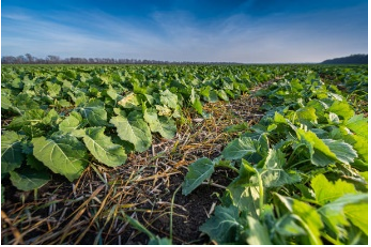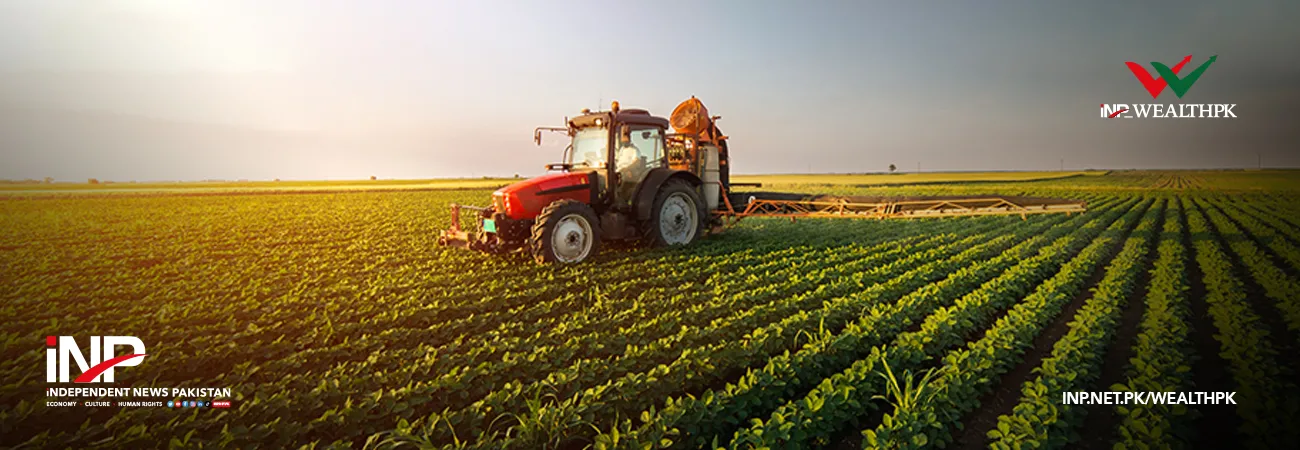آئی این پی ویلتھ پی کے
Faiza Tehseen
Growing cover crops is a sustainable solution to recover degraded lands and increase farming profits in Pakistan.

"Soil degradation is a continuous threat to food security and agricultural productivity in Pakistan. Growing cover crops are an effective way to restore degraded lands. Rather than being harvested, they are grown primarily to stabilise soil, increase the soil’s organic matter, suppress weed growth, improve water infiltration, alleviate soil moisture holding capacity, cut soil temperature fluctuations, fix nitrogen, and prevent erosion by their dense root systems,” explained Naveed Ahmad, an assistant director of Punjab’s agriculture department.
Talking exclusively to WealthPK, he said that in Pakistan, soil degradation is mostly caused by overgrazing, monocropping, excessive use of fertilizers, soil erosion, salinity, and nutrient depletion. “To combat this situation, cover crops are vital as they cut the fertilizer need by about 50%, fix the soil nitrogen and lead to around 10% to 20% higher crop yield.” He said that cover crops were not much focussed in Pakistan. “To earn profits, farmers prefer three consecutive cash crops per annum.
So, the land remains covered with crop but a lot of its organic matter is utilised, resulting in soil erosion and decreased light intensity. Rather than being harvested, cover crops are cultivated and rotavated, and the whole biomass mixed in earth becomes fertility increasing organic matter or a green manure.” Ahmad said both legume and non-legume crops are recommended as cover crops. “It is important to cultivate a short duration crop per annum.
It will not only cover the land but also increase the organic matter and nutrients. Sesbania bispinosa, locally called Jantar, fulfils both the purposes.” He said cover crops can help protect crops from the effects of climate change. He said that farmers, who integrate cover crops into their crop rotations, see noticeable improvement. “Initially, some farmers may hesitate to adopt cover crops due to their costs and additional labour. But cover crops increase long-term profits.
They also help reduce the crop cost by decreasing the input costs, including expensive fertilizers.” Ahmad said, “Despite all these benefits, small farmers lack access to cover crop seeds and adequate knowledge of best practices. A cultural shift is also necessary as many are still associated with productive farming solely with cash crops like wheat and sugarcane.”
“Continuous government support, farmer education, and financial incentives are key to expanding the use of cover crops across Pakistan. If initiated properly on a larger scale, they will help decrease dessertification, ensure food security, enhance farm profitability, and mitigate climate change impacts,” Ahmad noted. Discussing with WealthPK the importance of regularly cultivating cover crops, Muhammad Tahir, a farmer from Sanjar Pur in South Punjab, said, “They are good to be cultivated.
However, we mostly avoid them and prefer other cash crops.” The farmer said cultivation of cash crops on a long-term turns the land infertile gradually. “After that, cost intensive, synthetic ways are used to improve the earth’s fertility.” Tahir said that it is better to grow short duration cover crops to naturally cover the earth and increase its nutrients, including nitrogen levels. “Farmers need to be made aware about the importance of cover crops. If farmers cultivate lentils or fodder to serve the purpose, they can not only earn but can also get food and feed for livestock.”
Credit: INP-WealthPk











